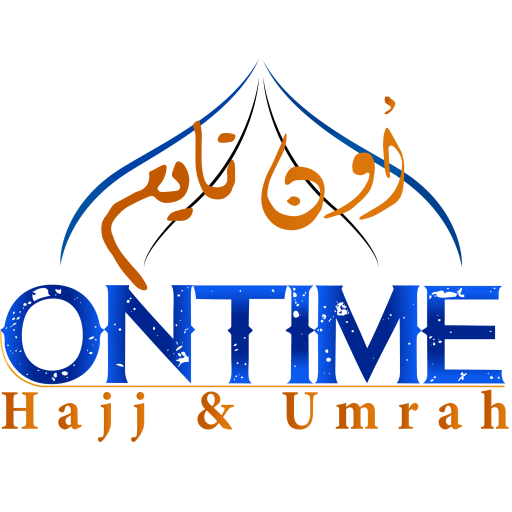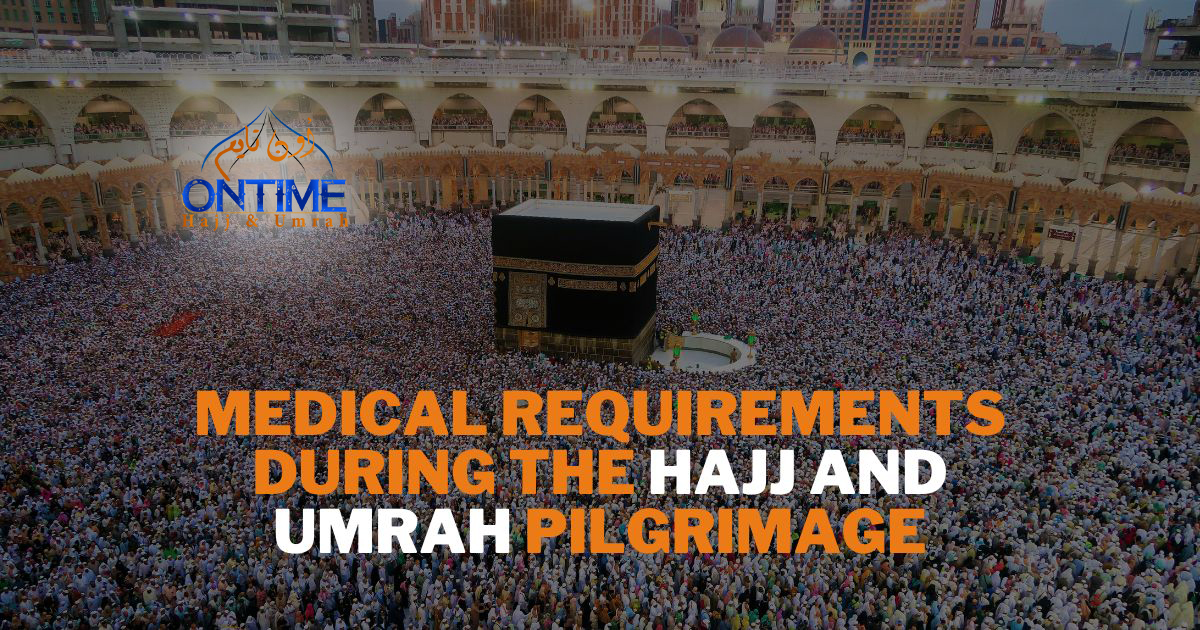Medical Requirements During The Hajj And Umrah Pilgrimage 2024
The Hajj and Umrah pilgrimage are among the most significant religious observances for Muslims worldwide. Undertaking this journey entails not only spiritual fulfillment but also careful consideration of one’s health. As pilgrims gather in Saudi Arabia from various corners of the globe, ensuring adequate medical preparation is paramount. Let’s delve into the essential medical requirements and considerations for pilgrims embarking on the Hajj and Umrah pilgrimage in 2024.
What is the Hajj and Umrah pilgrimage?
The Hajj pilgrimage, one of the Five Pillars of Islam, involves a journey to the holy city of Mecca in Saudi Arabia. Umrah, while not obligatory, holds great significance and can be performed at any time of the year. Both pilgrimages involve rituals steeped in tradition and spirituality.
Importance of medical preparation
Amidst the fervor of religious observance, pilgrims must prioritize their health. The sheer magnitude of the gatherings and the physical demands of the pilgrimage necessitate thorough medical preparation.
Pre-Pilgrimage Preparation
Consulting with healthcare professionals
Before embarking on the pilgrimage, pilgrims should consult with their healthcare providers. This consultation allows for personalized medical advice based on individual health conditions and needs.
Vaccinations and immunizations
Saudi Arabia mandates certain vaccinations for pilgrims to prevent the spread of infectious diseases. These may include vaccines for influenza, meningitis, and COVID-19, among others.
Medication management
Pilgrims with chronic conditions should ensure an adequate supply of medication for the duration of their journey. It’s advisable to carry medications in their original packaging and to bring along a copy of prescriptions.
Health Risks During Pilgrimage
Heat-related illnesses
The pilgrimage often occurs during the hot summer months, increasing the risk of heat-related illnesses such as heatstroke and dehydration. Pilgrims should stay hydrated, seek shade whenever possible, and avoid excessive physical exertion during peak temperatures.
Infectious diseases
The close proximity of millions of pilgrims creates ideal conditions for the spread of infectious diseases. Proper hand hygiene, wearing masks in crowded areas, and adhering to vaccination requirements can mitigate this risk.
Crowd-related injuries
Navigating through large crowds during rituals like the Tawaf can pose injury risks. Pilgrims should exercise caution, wear comfortable footwear, and refrain from pushing or shoving.
Medical Services in Saudi Arabia
Healthcare infrastructure
Saudi Arabia boasts modern healthcare facilities, including hospitals and clinics, to cater to the needs of pilgrims. These facilities are equipped to handle a range of medical emergencies.
Access to medical facilities
Pilgrims have access to medical services in close proximity to pilgrimage sites. Medical tents and first aid stations are strategically located to provide prompt assistance.
Emergency services
In the event of a medical emergency, pilgrims can dial the toll-free emergency number (997) for immediate assistance. Hospitals in Mecca and Medina are well-prepared to handle emergencies during the pilgrimage season.
Travel Insurance Coverage
Importance of travel insurance
Travel insurance provides financial protection and peace of mind in unforeseen circumstances such as medical emergencies, trip cancellations, or lost baggage.
Coverage options for pilgrims
Several insurance providers offer specialized travel insurance tailored to the needs of Hajj and Umrah pilgrims. These policies typically cover medical expenses, emergency evacuation, and trip cancellations.
Common Medical Concerns
Dehydration and heatstroke
Pilgrims should drink plenty of water and electrolyte-rich fluids to prevent dehydration. Symptoms of heatstroke, including dizziness and confusion, should be promptly addressed.
Respiratory infections
Crowded accommodations and close contact with other pilgrims increase the risk of respiratory infections. Practicing good respiratory hygiene and wearing masks can reduce this risk.
Musculoskeletal injuries
Extended periods of standing and walking during the pilgrimage may lead to musculoskeletal injuries. Pilgrims should practice proper body mechanics and take regular breaks to rest.
Medication and First Aid Kits
Essential medications
Pilgrims should carry a supply of essential medications, including pain relievers, antidiarrheals, and antipyretics. First aid kits should also contain bandages, antiseptic wipes, and over-the-counter medications.
First aid kit essentials
A well-stocked first aid kit can address minor injuries and ailments encountered during the pilgrimage. It’s essential to replenish supplies as needed and familiarize oneself with basic first aid techniques.
Dietary Considerations
Importance of dietary precautions
Maintaining a balanced diet is crucial for sustaining energy levels during the pilgrimage. Pilgrims should prioritize nutritious foods and avoid consuming overly spicy or heavy meals.
Safe food and water consumption
To prevent foodborne illnesses, pilgrims should opt for freshly prepared meals and avoid street vendors. Drinking bottled or boiled water is recommended to minimize the risk of waterborne diseases.
Hygiene Practices
Maintaining personal hygiene
Regular handwashing with soap and water is essential to prevent the spread of infections. Pilgrims should carry hand sanitizer for occasions when handwashing facilities are unavailable.
Sanitation tips
Pilgrimage sites can become crowded and unsanitary, increasing the risk of disease transmission. Pilgrims should dispose of waste properly and avoid littering to maintain cleanliness.
Managing Chronic Conditions
Diabetes management
Diabetic pilgrims must monitor their blood sugar levels regularly and carry an adequate supply of insulin and glucose-monitoring equipment.
Hypertension control
Pilgrims with hypertension should adhere to their prescribed medication regimen and avoid triggers such as excessive salt intake and emotional stress.
Women’s Health Considerations
Menstrual hygiene
Female pilgrims should pack an ample supply of menstrual hygiene products and plan for discreet disposal options.
Pregnancy precautions
Pregnant women should consult with their healthcare providers before undertaking the pilgrimage and take necessary precautions to ensure their well-being and that of their unborn child.
Emergency Preparedness
Knowing emergency procedures
Pilgrims should familiarize themselves with emergency procedures, including evacuation routes and assembly points, in case of emergencies such as fires or stampedes.
Contact information for medical assistance
Keeping emergency contact numbers readily accessible ensures swift access to medical assistance when needed. Pilgrims should also share their itinerary with family or friends for added security.
Post-Pilgrimage Health
Follow-up medical care
Upon returning from the pilgrimage, pilgrims should schedule a follow-up visit with their healthcare providers to address any health concerns that may have arisen during the journey.
Monitoring for symptoms
Monitoring for symptoms of illness or infection in the days following the pilgrimage allows for prompt medical intervention if necessary.
Cultural Sensitivity
Respecting local customs
Pilgrims should respect local customs and traditions, including modest dress codes and appropriate behavior in sacred sites.
Gender-specific considerations
Female pilgrims should be mindful of cultural norms regarding interaction with men and dress modestly to avoid unwanted attention.
Conclusion
In conclusion, prioritizing health and safety during the Hajj and Umrah pilgrimage is essential for a fulfilling and spiritually enriching experience. By adhering to medical requirements, practicing preventive measures, and seeking timely medical assistance when needed, pilgrims can ensure a safe journey and focus on the spiritual significance of their pilgrimage.
FAQs (Frequently Asked Questions)
1. Is travel insurance mandatory for Hajj and Umrah pilgrims?
While travel insurance is not mandatory, it is highly recommended to safeguard against unforeseen medical expenses and travel-related emergencies.
2. Are there any specific dietary restrictions during the pilgrimage?
While there are no strict dietary restrictions, pilgrims are advised to consume nutritious foods and avoid excessive spice and heavy meals to maintain energy levels.
3. What should pilgrims do in case of a medical emergency during the pilgrimage?
Pilgrims should dial the emergency number (997) for immediate assistance and seek help from medical personnel stationed at pilgrimage sites.
4. Can pregnant women perform Hajj or Umrah?
Pregnant women can perform Hajj or Umrah with the approval of their healthcare providers and by taking necessary precautions to ensure their well-being.
5. How can pilgrims stay hydrated during the pilgrimage?
Pilgrims should drink plenty of water and electrolyte-rich fluids, avoid excessive sun exposure, and rest in shaded areas to prevent dehydration.



